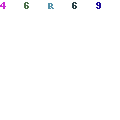Stacy receives NEH grant for Whitman research
Associate Professor of U.S. History Dr. Jason Stacy will be part of a 3-year $330,000 grant from the National Endowment for the Humanities (NEH). Stacy is receiving a $41,000 subcontract from the University of Nebraska-Lincoln, which received the grant, and he will be collaborating with Dr. Kenneth Price.
The grant starts in August 2013, and with the funding, Stacy will contribute research on Walt Whitman’s journalistic works for the Walt Whitman Archive, located at http://whitmanarchive.org.
Within the Walt Whitman Archive, browsers and researchers will find scanned manuscripts with transcriptions from Whitman as well as annotations. The site features Whitman’s poetry, letters, and portraits as well as scholarly criticism, a fully searchable bibliography, and contemporary reviews of Whitman’s work.
The Archive includes what Stacy deems as the “best online collection of Leaves of Grass,” with a scanned first edition of the iconic collection of poetry as well as clear, scanned images of the original hand written pages. Within the Archive, researchers will find a multitude of works and primary sources right from their computers.
“It’s a great resource for those of us who do Whitman studies,” Stacy says.
While the Archive has a vast amount of Whitman’s works, one element that the site does not have is Whitman’s writings before he became a poet. Before Leaves of Grass was published in 1855, Whitman was a journalist and a writer of fiction for about 15 years.
Stacy has been awarded the grant to locate and add some of Whitman’s newspaper articles to the site. He will be working with the creators and co-editors of the site, Ed Folsom and Kenneth M. Price, with whom Stacy feels honored to be working.
“I’m lucky to work with those two. They are some serious Whitman scholars, and I hope to lend a hand,” says Stacy.
Adding the journalistic works will indeed expand the archive. However, the grant does not come with the expectation to locate and scan every single article that Whitman wrote in 15 years. Stacy is only to find the journalistic works that lead to the “Whitman voice” established in Leaves of Grass.
“Instead of trying to upload all the journalism in three years…we’re going to concentrate on the series of articles where [Whitman] took on a persona and used the pronoun ‘I,’” Stacy explains. “We’re going to argue that he began to experiment with that Whitman voice that was a kind of all-seeing eye [and] able to filter the nation through himself and back to the nation.”
Working under the grant, Stacy will travel to various places in the Northeast to gather Whitman’s original newspaper articles. Some organizations that have collections of Whitman’s works are the Paterson Free Public Library in New Jersey, the New York Historical Society, and the Brooklyn Historical Society.
When he finds the works he is looking for, Stacy will scan the full pages of the articles to upload to the Archive and provide annotations within Whitman’s articles. Once in the Archive, researchers will be able to hover over various words and find notes and comments connecting that specific topic or person to Whitman.
The grant will cover Stacy’s traveling expenses, a course release, and the hiring of a research assistant for the full three years. While he has not begun to think of which student will be hired on as his research assistant and will not make a decision about it until Spring of 2013, he does know the qualities the student must possess.
“There’s a particular kind of research assistant I’m looking for: one who has technical savvy, an interest in Antebellum America, and ideally, someone who can engage poetry both as literature and as historical artifact,” he says.
While he is waiting for the grant to begin in August 2013, Stacy will be finishing another Whitman-related project that he has taken on for the University of Iowa. Currently, he is working on Walt Whitman’s Selected Journalism, which he hopes to have done before the grant begins.
Stacy’s work for University of Iowa will significantly help him to prepare for the grant research, as the articles he is gathering for the collection will also be gathered for the Archive.
“It’s going to be a handy reference to key articles, divided thematically, that will cover roughly his period as a journalist, from the 1840s to the Civil War,” Stacy says. With this work, he hopes to produce “deep annotations to provide context for the editorials that [Whitman] wrote.”
Stacy is additionally the author of Walt Whitman’s Multitudes: Labor Reform and Persona in Whitman’s Journalism and the First Leaves of Grass, 1840-1855, a book that came from revisions done to his dissertation.
As a historian, Stacy’s interest in Whitman springs from his interest in pre-Civil War America. To Stacy, Whitman played a significant role in this part of history.
“Whitman’s very close to some very important changes that are happening in a period I’m interested in,” he says. “Whitman functions as kind-of a touchstone for me, for the times. I also love his poetry…I like to engage his poetry as a historical resource, as an artifact.”
Stacy’s work will provide another insight into Whitman’s work as historical reference on the Archive as well as a fascinating look into Whitman’s lesser known early work.
Filed Under: English Language & Lit • Historical Studies













